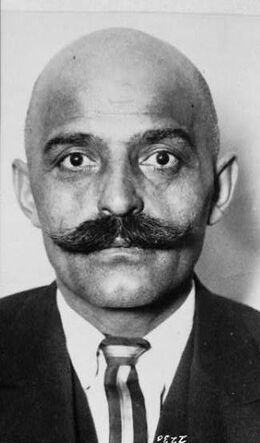Georges Ivanovich Gurdjieff
Georges Ivanovich Gurdjieff was a mystic, philosopher, esoteric writer, spiritual teacher, composer, and choreographer of Armenian and Greek descent. He was born in Alexandropol, Armenia (back then part of the Russian Empire) in the late 19th century, with his birth date often cited as January 13, 1866. He is best known for his teachings on self-awareness and self-improvement, which he referred to as "The Work" or "The Fourth Way." Gurdjieff worked first in Russia and later in France and became known as a teacher and founder of a worldwide and widespread following.
Gurdjieff established the Institute for the Harmonious Development of Manin 1919 at Tiflis (now Tbilisi), Georgia, where he taught his ideas through a combination of lectures, music, dance (Movements), and group work. It was reestablished at Fontainebleau, France, in 1922. [1]
Gurdjieff is known for his charismatic personality and idiosyncratic, improvisatory methods of teaching and his life and teachings have been explored and critiqued in countless publications. [2]
Some of his students called the Gurdjieff approach “A method of Conscious Effort and Voluntary Suffering against INERTIA and REPETITION.” He died on October 29, 1949, in Neuilly-sur-Seine, France. His legacy continues through the work of various Gurdjieff foundations and groups around the world. [3]
Notes
- ↑ Britannica. George Ivanovitch Gurdjieff. https://www.britannica.com/biography/George-Ivanovitch-Gurdjieff. Accessed on 3/9/24
- ↑ Petsche, Johanna.A Gurdjieff Genealogy: Tracing the manifold Ways the Gurdjieff Teaching has travelled.International Journal for the Study of New Religions, Vol. 4, No. 1, 2013
- ↑ Anderson, Margaret. The Unknowable Gurdjieff. Penguin Books Ltd., London, England. 1962
